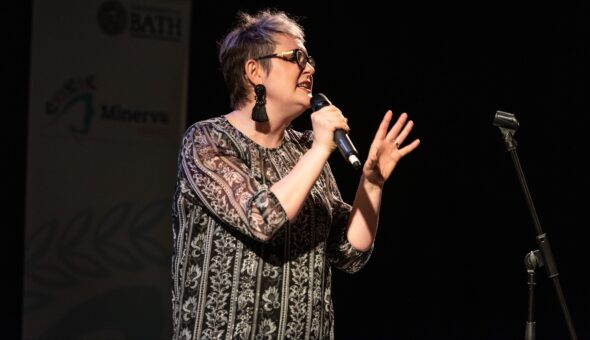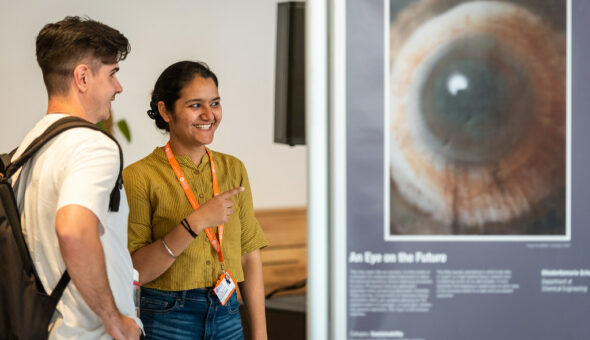Dr Nick Priest (Biology & Biochemistry) was awarded £500 to design and deliver a citizen science display that enabled members of the public to collect data from experiments.
Nick’s public engagement project aims to raise appreciation for evolution by having members of the public collect data from experiments that are set up and run live. Although his experiments are focused on the topic of how animals find medicine in nature, they are designed to provoke questions about the evolution of complex behaviours and how humans should medicate in order to avoid the evolution of antimicrobial resistance. The main evidence his lab has found so far suggests that drinking alcohol confers resistance to sexually transmitted infections and it does so through a novel “non-immunological” mechanism.
Nick and his team carried out an experiment at the University of Bath’s 50th Anniversary Festival focused around the question: “How much alcohol do fruit flies drink?” For this, the public used digital callipers to quantify the consumption of alcohol from individual flies. There were 43 participants involved in the data collection and 25 of these engaged in in-depth conversations with the Priest lab. Some questions arose during the data collection that served as useful prompts to explain evidence the lab has already collected. Questions such as, “How useful is the fruit fly model?”, “How can this help humans?” and “Doesn’t drinking lead to STIs, not the other way around?” were easy lead-ins to justify discussions of the results and approaches used in the Priest lab. However other questions posed by the public have led to additional experiments. The question, “If it protects them, then do flies drink alcohol before sex?” led a team of undergraduates to test whether the call of a male stimulates female fruit flies to mate. They found that virgin females placed in a sound chamber with mating calls from conspecific males drank more alcohol that females played the wrong call or females placed in a silent chamber.

Nick's citizen science stand at the University's 50th anniversary festival
The Priest lab also trialled an experiment at the Festival of Nature in Bath. The experiment involved placing virgin female flies that had been medicated either with alcohol or not into tubes with virgin males and scoring for sexual congress (i.e. whether "pre-drinking" encourages sex). The public witnessed the setup of the experiment and added measurements to the table at the stall throughout the day, which collated the data. Most of the participants were primary school children and they showed a strong interest in the experiment. Several children returned to the stall 3-4 times throughout the day to take part in the data collection. There were 120 participants involved in the data collection and 45 of them engaged in in-depth conversations with Nick and his team about the research. In the coming months, Nick hopes to address a question from the public about ketones (a common product of human consumption of alcohol and driver of liver damage), by measuring ketone levels in the urine/waste of flies.
On 4th July, Nick ran experiments on food choice at a summer school event for budding scientists. After a full day of experiments, one of the 9 pupils stated that fly research was what she wanted to do for the rest of her life.
At the Festival of Nature event, Nick was invited to give a talk at the Royal Entomological Society Conference, 3 local primary schools and a private secondary school. One of his long-term goals is to expand the scope of his public engagement by presenting multiple tables of experiments at a national festival (i.e. outside of Bath). Ideally, this would be at the Green Man Festival in the Brecon Beacons, Wales because they have science fields that attract a family audience. He would also like to compile the data he’s collected so far and have it published as a Citizen Science paper.
Contact Nick (n.priest@bath.ac.uk) for further information about his project.
Respond

